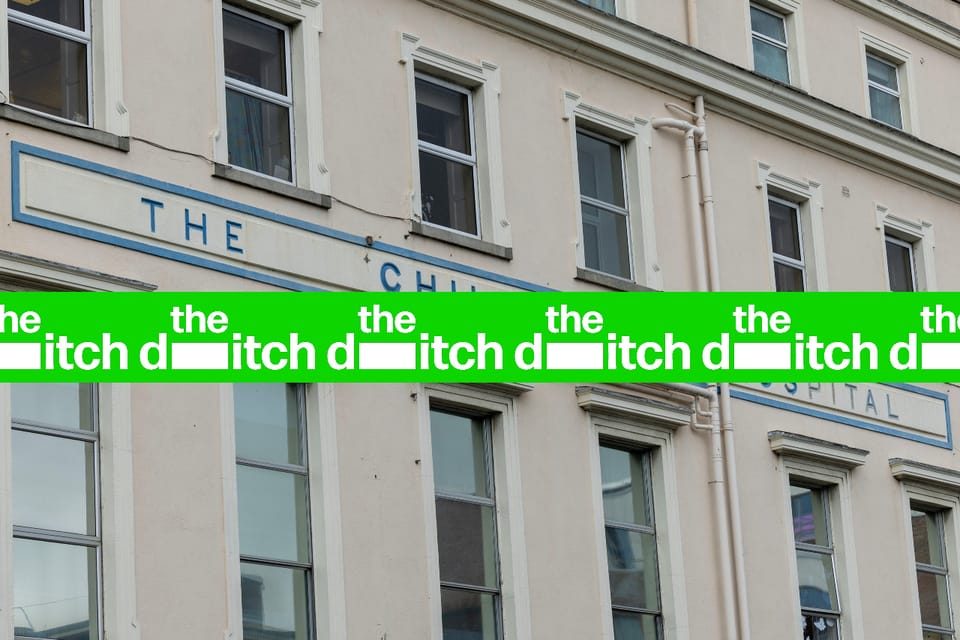The Health Information and Quality Authority (HIQA) – in correspondence marked “urgent and confidential” – has confirmed the “potentially significant” patient safety issues caused by the use of non-medical grade springs in surgery at Temple Street Children's Hospital.
Children’s Health Ireland (CHI), which manages the hospital, has so far failed to contact at least two of the families affected by the scandal to inform them of the contents of HIQA’s letter.
Though HIQA asked CHI to give an update on care plans for children affected, a source at the hospital has said, “There are no support plans for the children involved” – an account confirmed by the parent of one child.
Recently elected taoiseach Simon Harris five years ago pledged during his tenure as health minister that no child would wait more than four months for scoliosis surgery.
‘This is of potential and serious clinical significance’
On September 15 last year, The Ditch first reported that “unlicensed devices made with non-medical parts” had been “implanted in child patients” at Temple Street Children’s Hospital.
A whistleblower at the hospital also spoke of concerns about rates of reoperation and infection in children undergoing spinal surgery at Temple Street.
In a letter seen by The Ditch, dated 16 April and headed “Emergent finding from HIQA’s review requiring urgent attention and potential action by CHI”, the authority has warned Children’s Health Ireland about its findings to date.
The use of the “non-CE marked springs”, according to HIQA, is “potentially significant from a patient safety and risk perspective”. The term CE refers to European health, safety and environmental protection standards.
The letter, addressed to CHI’s chief financial officer, goes on to say, “HIQA’s review team has received information from a number of sources during the course of this review to date that confirms that the material composition of the springs were an uncoated non-alloyed spring steel, otherwise known as carbon steel.”
HIQA’s letter made clear the clinical implications of using this steel.
“This is of potential and serious clinical significance as – unlike stainless steel – this material is known to corrode if exposed to water and is more likely to degrade on implantation than stainless steel. This information is relevant in the context of HIQA’s review, and may also be of relevance to the ongoing clinical treatment and support plans for the children implanted, regardless of whether the springs(s) have now been explanted.”
HIQA’s letter refers to previous correspondence from CHI, which, said HIQA, “provided information on the nature of additional supports already provided - or in planning - for these children”. The letter asked for a “further update on this, after further consideration of the information on the composition of the springs”.
One member of staff at the hospital has said no plans for children affected exist in any substantive form. This was confirmed by the parent of one affected child, who is still awaiting a promised independent second opinion on whether the use of the unregistered device has caused significant harm.
“There are no support plans for the children involved. They had a vague ‘full disclosure meeting’ where the composition[of the springs was not mentioned,” said the staff member at Temple Street.
The Ditch made contact with all the families affected by the scandal, and found they had yet to be made aware of the HIQA letter. One of the patients concerned is still awaiting an operation to remove the implant.
At least two of are still waiting for CHI to contact them regarding the findings of HIQA’s letter – a full nine days after the letter headed “requiring urgent attention and potential action” was delivered.
The acting chief executive and chief medical officer at CHI, as well as the HSE’s chief clinical officer, were copied into the correspondence.
According to Department of Health figures, at the end of last year 231 children remained on CHI waiting lists for spinal procedures, with 78 patients waiting over four months.
CHI, HIQA and the Department of Health were contacted for comment. CHI redirected the question to HIQA, which said its “review is progressing in line with the published terms of reference as planned, and we expect to conclude the review and publish the report in 2024”.


